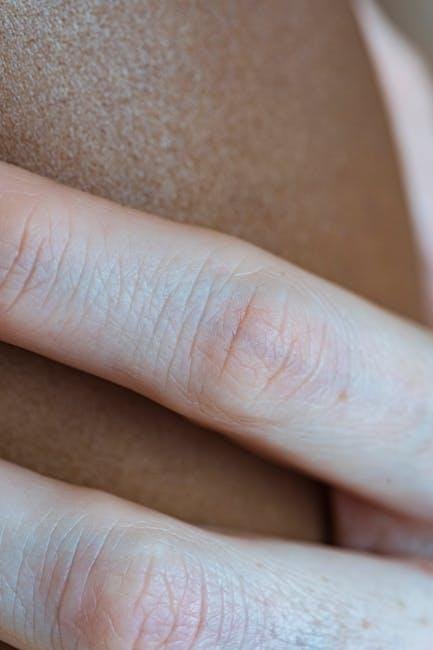Introduction: How Hormones Affect Your Skin and What to Do
In the intricate landscape of our bodies, hormones reign as powerful messengers, dictating a symphony of biological functions that influence everything from mood to metabolism. Yet, their impact extends far beyond the confines of our internal systems; hormones also play a pivotal role in the health and appearance of our skin. Many of us have experienced the telltale signs of hormonal fluctuations—a sudden breakout, dryness, or an unexpected glow—and wondered why our skin seems to have a mind of its own. In this article, we will delve into the connection between hormones and skin health, exploring the biological mechanisms at play and offering practical strategies to restore balance. Join us as we uncover the secrets behind these invisible forces and discover how to cultivate radiant skin, no matter the hormonal tides you may face.
Understanding Hormonal Fluctuations and Their Impact on Skin Health
Hormonal fluctuations can considerably influence skin health, manifesting in various ways throughout the lifecycle. For example, during puberty, the body experiences increased levels of androgens, which can lead to excess oil production and clogged pores, contributing to acne.Similarly, hormonal changes related to the menstrual cycle can trigger breakouts in some individuals, frequently enough around the time of ovulation or menstruation. This cyclical pattern can leave many feeling frustrated,as the skin’s response can vary with the changes in estrogen and progesterone levels.
In addition to acne, hormonal shifts can also impact skin hydration and elasticity. As estrogen levels decline with age, particularly during menopause, skin tends to lose its moisture and resilience, resulting in wrinkles, fine lines, and sagging. Here are a few responses your skin might have to hormonal changes:
- Increased oiliness – A surge in androgens can cause sebaceous glands to become overactive.
- Dryness and irritation – lower estrogen levels may decrease natural oil production, leading to dryness.
- Hyperpigmentation – Prolonged exposure to certain hormones can contribute to dark spots.
- Uneven texture – Hormonal imbalances can disrupt skin renewal, causing rough patches.
To address these concerns, it’s essential to understand which hormonal changes are affecting your skin and take appropriate measures. A balanced diet rich in antioxidants, regular hydration, and a consistent skincare regimen can help manage the effects of hormonal fluctuations. Additionally, consulting with a healthcare professional can provide insights and treatment options tailored to individual needs, ensuring that your skin remains healthy through life’s hormonal ebbs and flows.

Common Skin Conditions Linked to Hormonal Changes
The intricate dance of hormones significantly impacts our skin’s health and appearance. Fluctuations in hormones, particularly during puberty, menstruation, pregnancy, and menopause, can lead to various skin conditions.Acne,often associated with increased androgen levels,can erupt when oil glands become overactive. Additionally, melasma, characterized by brown or gray-brown patches, frequently occurs in women due to estrogen spikes, especially during pregnancy or while taking oral contraceptives. Other common issues include eczema and psoriasis, which may flare during hormonal changes, reflecting the skin’s sensitivity to internal shifts.
Understanding the skin conditions linked to hormonal imbalances allows for better management and treatment. Below is a summary of these conditions:
| Condition | Hormonal Influence |
|---|---|
| Acne | Increased androgens during puberty or hormonal cycles. |
| Melasma | Estrogen fluctuations during pregnancy or hormone therapy. |
| Eczema | Changes in cortisol levels can aggravate symptoms. |
| Psoriasis | Stress and hormonal shifts, particularly during menopause. |
By being aware of these interconnections, individuals can take proactive steps toward managing their skin health during hormonal changes. This may involve adjusting skincare routines or consulting healthcare professionals for targeted treatments.

Effective Skincare Routines to Combat Hormonal Effects
to effectively manage the impact of hormonal changes on your skin, it’s crucial to develop a tailored skincare routine. Start with a gentle cleanser that removes impurities without stripping your skin of natural oils. follow this with a salicylic acid-based toner to help minimize breakouts and control excess sebum. Incorporating hydrating serums packed with hyaluronic acid can combat dryness and promote a healthy complexion,while moisturizers with non-comedogenic ingredients will ensure your skin remains balanced. Shield your skin daily with a broad-spectrum sunscreen, as hormonal fluctuations can increase sensitivity to sunlight.
in addition to your daily regimen, consider integrating weekly treatments to maintain skin health. Exfoliation with a gentle scrub or enzyme-based product can help to unclog pores and brighten your skin. Treat yourself to a clay mask to absorb excess oil, especially during hormonal peaks. A well-rounded approach could also include specialist products containing retinol for cell turnover and niacinamide for reducing redness and inflammation.here’s a simple comparison of effective products:
| Product Type | key Ingredient | Benefits |
|---|---|---|
| Cleanser | Gentle Surfactants | Removes impurities |
| Toner | Salicylic Acid | Controls breakouts |
| Serum | Hyaluronic Acid | Hydration |
| Moisturizer | Non-comedogenic Oils | Bacteria-free hydration |

Natural Remedies and Lifestyle adjustments for Radiant Skin
Embracing natural remedies and making simple lifestyle adjustments can significantly enhance your skin’s health and vitality. for individuals whose skin is influenced by hormonal fluctuations, incorporating herbal teas such as chamomile and green tea can help alleviate inflammation and balance hormones.Additionally, a diet rich in omega-3 fatty acids, found in foods like salmon and flaxseeds, promotes skin hydration and supports elasticity. Ensuring you have plenty of fruits and vegetables in your meals can also aid in delivering essential vitamins and antioxidants that fight free radical damage.
Moreover, maintaining a regular routine can help stabilize hormonal levels and promote a radiant complexion.Aim to practice stress-reducing techniques such as yoga, meditation, or even deep-breathing exercises to keep cortisol production in check. Consistent sleep is equally vital; strive for 7-9 hours per night to allow your skin to recover and regenerate. To further enhance your glow, consider a gentle evening skincare routine that includes natural oils like jojoba or rosehip, which can deeply moisturize and nourish the skin without clogging pores. Here’s a rapid breakdown of lifestyle adjustments and natural remedies:
| Adjustment/Remedy | Benefits |
|---|---|
| Herbal Teas | Reduces inflammation |
| Omega-3 Fatty Acids | Enhances skin hydration |
| Yoga & Meditation | Reduces stress |
| Regular Sleep | Promotes skin recovery |
| Natural Oils | Moisturizes without clogging |
Final Thoughts
As we navigate the intricate landscape of our skin, it becomes clear that hormones play a pivotal role in shaping its health and appearance. From the ebb and flow of monthly cycles to the transformative changes of pregnancy and menopause, our bodies are in a constant state of hormonal flux that directly influences our skin’s behavior and condition. Understanding this relationship empowers us to take proactive measures—whether through lifestyle adjustments, skincare routines, or consultations with healthcare professionals—to mitigate the effects of hormonal changes.Ultimately,while our hormones may seem like an uncontrollable force,knowledge is our best ally. By unlocking the mysteries of hormone-skin interactions, we can better equip ourselves to embrace our skin’s unique narrative. So, the next time you notice a shift in your complexion, remember that it’s not just skin deep; it’s a reflection of your body’s internal symphony. With the right strategies and a touch of patience, you can harmonize your skin’s needs with the natural rhythms of your body, unlocking a clearer, healthier, and more radiant you.



